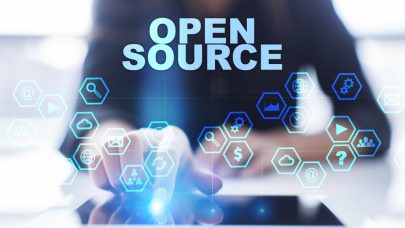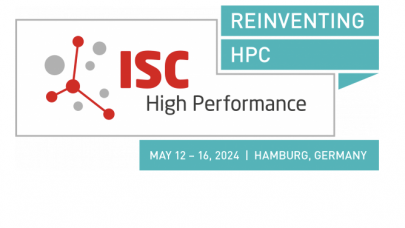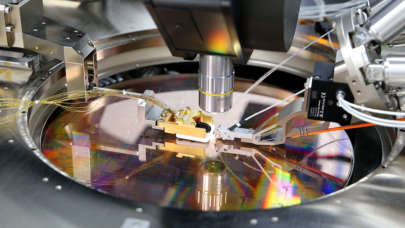Here’s a collection of highlights, selected totally subjectively, from this week’s HPC news stream as reported at insideHPC.com and HPCwire.
10 words and a link
First OpenSolaris system debuts in slot 221 on the Top500
InformationWeek highlights Convey Computer as “startup of the week”
Scalable Informatics intros new low cost storage appliance
Good summary of LLNL’s Hyperion testbed in GCN
New IBM collaboratory in Dublin to apply HPC to business
Transactional memory pros and cons from ACM Queue
The Register’s detailed recap of Patterson’s SC08 talk
insideHPC salutes SC’s 20 year vets
UCAR releases next version of VAPOR
Portland Group announces PGI 8.0 compilers
Audi installs new HP cluster
Sun HPC Consortium presentations online
The science of victory
The CRA Policy blog points to an outstanding video highlighting the importance of funding science and technology at the federal level released in conjunction with the Army Science conference this week in Orlando, Fla. Early on in the video we hear from some old guys who were funded by our government at various times in their careers, telling us that everyone thought they were crazy. Later we learn that they received Nobel prizes for work on such fundamental technologies as LASERs. Brilliant.
Honestly, this video is so good that it’s hard to believe it was created, or even commissioned, by the government. The bottom line is that because we humans have very short memories and fundamental discoveries take a long time, science does not stand on its own. It needs advocacy, and advocates. This kind of video is science’s ideal advocate.
Broadening industrial use of HPC
Computerworld ran an article on Friday that hits some of the high points in the efforts of universities to broaden industrial access to supercomputers:
But there’s a problem in getting HPC capabilities into the hands of companies that create jobs. Thousands of businesses could conceivably make use of the systems, but many can’t afford them – leaving HPC’s economic potential largely unrealized….That has prompted some universities and academic institutions to launch programs under which they provide companies with access to high-performance systems as well as technical help.
Interesting fact: IDC puts the amount of money (public and private) in HPC at $10B last year, but:
To provide some perspective, consider this: since September, the U.S. government has spent $150 billion to keep insurer American International Group Inc. afloat. Meanwhile, HPC resources are inaccessible to many companies that could benefit from using the technology.
When you say it like that, $10B does seem like a small amount of money.
Highlighted in the article are Ohio Supercomputer Center (OSC) partnership with the Edison Welding Institute (EWI), the Indiana/Purdue effort to make HPC available to Indiana businesses, and the LSU/Electronic Arts partnership:
The role that HPC technology can play in developing new economic opportunities was illustrated in August, when Louisiana State University and the Louisiana government announced an agreement to open a quality assurance center with Electronic Arts Inc., a Redwood City, Calif.-based developer of computer games and other interactive entertainment software. The announcement followed the development of a digital media academic program that includes increased research in visualization on HPC systems.
The article also mentions Rice’s parallel programming education effort, which I think is the cat’s boots:
The university is trying to make training in parallel programming as affordable and accessible as possible. As part of that effort, Rice is developing books that can be downloaded online, partly through a competition that challenges people to write about various parallel computing topics. A number of companies are backing the contest, including Chevron Corp., Sun Microsystems Inc. and Nvidia Corp. “These firms really need to have good people to help them do scientific computing,” Koelbel said.
Dang, wish I’d thought of that as an insideHPC effort. But Chuck probably has better access to infrastructure and, you know, money than I do. I could probably scrape together $2.34 in change from the couch in the insideHPC.com world headquarters.
The article is interesting and well written for a general IT piece about HPC. I recommend a read, especially if you aren’t already aware of these important programs.
Carr on Mathematica’s HPC integration
We pointed to this back in early November when it was announced. Nick Carr’s article provides a few more details on the specifics of how the integration between Mathematica and Amazon’s compute resources happens:
The workflow is very simple to understand and it takes very few clicks to deploy your code in the cloud. A typical Mathematica user develops code in their standard notebook interface, a programming concept that defines their input code and output results, including graphics. The user specifies input cells, output cells and other parameters. Mathematica will evaluate one input cell at a time so evaluation could take a lot of time to process on one machine. Now, with the new Cloud service, users can evaluate the entire notebook in one shot by pushing it to the cloud.
The HPC Cloud Service lets users take the entire notebook, click a few buttons in the HPC Cloud Service GUI and ask it to run it in the cloud. The HPC Cloud Service evaluates the code, runs it in parallel Mathematica sessions, bundles up the results and notifies the user. In other words, a user can test the code (a Mathematica Notebook) with a small amount of input and then increase size of the input to a more realistic size, push it to the cloud so it runs on hundreds and even thousands of nodes in parallel, and get notified when its done.
Many research labs have been building software like this for the past few years as one offs, and I’ve even been part of an effort to create a toolset to do this for the HPC assets run by the DOD’s HPC Modernization Program (it’s now deployed enterprise-wide within the program). But all of these efforts have very limited scope. Carr is right to point out that this is a real step for the democratization of HPC out of the sandbox of the small community of federal researchers doing it previously.
—–
John West is part of the team that summarizes the headlines in HPC news every day at insideHPC.com. You can contact him at [email protected].


























































